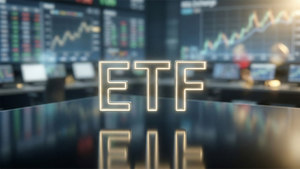
TOKYO and CAMBRIDGE, Mass., May 10, 2022 - (JCN Newswire) - Eisai Co., Ltd. and Biogen Inc. announced today that Eisai has completed the rolling submission to the U.S. Food and Drug Administration (FDA) of a Biologics License Application (BLA) under the accelerated approval pathway for the investigational anti-amyloid beta (Abeta) protofibril antibody lecanemab (BAN2401) for the treatment of mild cognitive impairment (MCI) due to Alzheimer's disease (AD) and mild AD (collectively known as early AD) with confirmed presence of amyloid pathology in the brain. As part of the completed rolling submission, Eisai has requested Priority Review. If the FDA accepts the BLA, the Prescription Drug User Fee Act (PDUFA) action date (target date for completion of examination) will be set. While Eisai is currently submitting lecanemab under the accelerated approval pathway, the lecanemab Phase 3 confirmatory Clarity AD clinical trial conducted with 1,795 patients will report out in the Fall of 2022. The FDA has agreed that the results of Clarity AD, when completed, can serve as the confirmatory study to verify the clinical benefit of lecanemab. Dependent upon the results of the Clarity AD clinical trial, Eisai may submit for full approval of lecanemab to the FDA during fiscal year 2022.
The BLA submission for lecanemab is based on clinical, biomarker and safety data from the proof-of-concept Phase 2b (Study 201 Core) in 856 people with early AD with confirmed presence of amyloid pathology, biomarker and safety data from the Study 201 OLE (open-label extension study, 180 subjects), and blinded safety data from the confirmatory Clarity AD Phase 3 study (1,795 subjects). The large number of participants across these studies provides the FDA with extensive safety data. Study 201 explored the impact of treatment with lecanemab on reducing amyloid plaque and clinical decline. At 18 months of treatment, 10 mg/kg biweekly lecanemab reduced brain amyloid by a mean of 0.306 SUVr units (from a baseline mean of 1.37), and over 80% of subjects became amyloid negative by visual read. Furthermore, the extent of reduction in amyloid was correlated with slower clinical decline on ADCOMS (Alzheimer's Disease Composite Score), CDR-SB (Clinical Dementia Rating-Sum-of-Boxes), and ADAS-cog (Alzheimer Disease Assessment Scale-Cognitive Subscale) at the treatment group and patient level. In the Core study, the overall rate of amyloid-related imaging abnormalities-edema/effusion (ARIA-E), an adverse event associated with anti-amyloid beta antibodies therapies was 9.9% (16/161) of patients treated with lecanemab 10 mg/kg biweekly compared with 0.8% (2/245) of placebo patients. The results from Study 201 were published in a peer-reviewed journal Alzheimer's Research and Therapy in April 2021.
"We would like to thank the people living with early AD and the healthcare professionals who participated in the lecanemab 201 study for their cooperation allowing completion of this BLA to the U.S. FDA. Alzheimer's disease is a progressive and devastating disease with few treatment options," said Haruo Naito, Chief Executive Officer at Eisai Co., Ltd. "Eisai employees have spent time with people living with Alzheimer's disease and their families to truly understand their feelings and challenges and have been working to create new treatments for many years. Our comprehensive medicine creation approach along the Alzheimer's disease continuum reflects Eisai's long-term commitment to providing innovative treatments to the people living with AD, their families and healthcare professionals who urgently need new treatment options."
"With Alzheimer's disease, patients and their loved ones don't have the luxury of time. There is an enormous unmet need in this space, and we continue to make progress in advancing additional treatment options for people living with this devastating disease," said Michel Vounatsos, Chief Executive Officer at Biogen. "Anti-amyloid antibodies are a new wave of important medicines, which could provide patients and their physicians more options in addressing this complex disease."
Lecanemab was granted Breakthrough Therapy and Fast Track designations by the FDA in June and December 2021, respectively. In March 2022, Eisai initiated submission of application data to the Pharmaceuticals and Medical Devices Agency (PMDA) under the prior assessment consultation system in Japan with the aim of obtaining early approval for lecanemab, and aims to file for the manufacturing and marketing approval based on the results of Clarity AD during Eisai's fiscal year 2022.
Eisai serves as the lead of lecanemab development and regulatory submissions globally with both Eisai and Biogen co-commercializing and co-promoting the product and Eisai having final decision-making authority.
About Lecanemab (BAN2401)
Lecanemab is an investigational humanized monoclonal antibody for Alzheimer's disease (AD) that is the result of a strategic research alliance between Eisai and BioArctic. Lecanemab selectively binds to neutralize and eliminate soluble, toxic amyloid-beta (Abeta) aggregates (protofibrils) that are thought to contribute to the neurodegenerative process in AD. As such, lecanemab may have the potential to have an effect on disease pathology and to slow down the progression of the disease. Currently, lecanemab is being developed as the only anti-Abeta antibody that can be used for the treatment of early AD without the need for titration. With regard to the results from pre-specified analysis at 18 months of treatment, Study 201 demonstrated reduction of brain Abeta accumulation (P
Currently, lecanemab is being studied in a confirmatory Phase 3 clinical study in symptomatic early AD (Clarity-AD), following the outcome of the Phase 2 clinical study (Study 201). Since July 2020 the Phase 3 clinical study (AHEAD 3-45) for individuals with preclinical AD, meaning they are clinically normal and have intermediate or elevated levels of amyloid in their brains, is ongoing. AHEAD 3-45 is conducted as a public-private partnership between the Alzheimer's Clinical Trial Consortium that provides the infrastructure for academic clinical trials in AD and related dementias in the U.S, funded by the National Institute on Aging, part of the National Institutes of Health, Eisai and Biogen. Since January 2022, the Tau NexGen clinical study for Dominantly Inherited Alzheimer's disease (DIAD), that is conducted by Dominantly Inherited Alzheimer Network Trials Unit (DIAN-TU), led by Washington University School of Medicine in St. Louis, is ongoing. Furthermore, Eisai has initiated a lecanemab subcutaneous dosing Phase 1 study. Eisai obtained the global rights to study, develop, manufacture and market lecanemab for the treatment of AD pursuant to an agreement concluded with BioArctic in December 2007.
* Developed by Eisai, ADCOMS (AD Composite Score) combines items from the ADAS-Cog (Alzheimer's Disease Assessment Scale-cognitive subscale), CDR (Clinical Dementia Rating) and the MMSE (Mini-Mental State Examination) scales to enable a sensitive detection of changes in clinical functions of early AD symptoms and changes in memory. The ADCOMS scale ranges from a score of 0.00 to 1.97, with higher score indicating greater impairment.
** An 80% or higher estimated probability of demonstrating 25% or greater slowing in clinical decline at 12 months treatment measured by ADCOMS from baseline compared to placebo.
About the Collaboration between Eisai and Biogen for Alzheimer's Disease
Eisai and Biogen are collaborating on the joint development and commercialization of AD treatments. Eisai serves as the lead in the co-development of lecanemab.
About the Collaboration between Eisai and BioArctic for Alzheimer's Disease
Since 2005, BioArctic has had a long-term collaboration with Eisai regarding the development and commercialization of drugs for the treatment of AD. The commercialization agreement on the lecanemab antibody was signed in December 2007, and the development and commercialization agreement on the antibody lecanemab back-up for AD, which was signed in May 2015. Eisai is responsible for the clinical development, application for market approval and commercialization of the products for AD. BioArctic has no development costs for lecanemab in AD.
About Eisai Co., Ltd.
Eisai Co., Ltd. is a leading global pharmaceutical company headquartered in Japan. Eisai's corporate philosophy is based on the human health care (hhc) concept, which is to give first thought to patients and their families, and to increase the benefits that health care provides to them. With a global network of R&D facilities, manufacturing sites and marketing subsidiaries, we strive to realize our hhc philosophy by delivering innovative products to target diseases with high unmet medical needs, with a particular focus in our strategic areas of Neurology and Oncology.
Leveraging the experience gained from the development and marketing of a treatment for Alzheimer's disease, Eisai aims to establish the "Eisai Dementia Platform." Through this platform, Eisai plans to deliver novel benefits to those living with dementia and their families through constructing a "Dementia Ecosystem," by collaborating with partners such as medical organizations, diagnostic development companies, research organizations, and bio-ventures in addition to private insurance agencies, finance industries, fitness clubs, automobile makers, retailers, and care facilities. For more information about Eisai Co., Ltd., please visit https://www.eisai.com.
About Biogen
As pioneers in neuroscience, Biogen discovers, develops, and delivers worldwide innovative therapies for people living with serious neurological diseases as well as related therapeutic adjacencies. One of the world's first global biotechnology companies, Biogen was founded in 1978 by Charles Weissmann, Heinz Schaller, Sir Kenneth Murray, and Nobel Prize winners Walter Gilbert and Phillip Sharp. Today, Biogen has a leading portfolio of medicines to treat multiple sclerosis, has introduced the first approved treatment for spinal muscular atrophy, and is providing the first and only approved treatment to address a defining pathology of Alzheimer's disease. Biogen is also commercializing biosimilars and focusing on advancing the industry's most diversified pipeline in neuroscience that will transform the standard of care for patients in several areas of high unmet need.
In 2020, Biogen launched a bold 20-year, $250 million initiative to address the deeply interrelated issues of climate, health, and equity. Healthy Climate, Healthy Lives aims to eliminate fossil fuels across the company's operations, build collaborations with renowned institutions to advance the science to improve human health outcomes, and support underserved communities.
The company routinely posts information that may be important to investors on our website at www.biogen.com.
MEDIA CONTACT:
Eisai Co., Ltd.
Public Relations Department
+81-(0)3-3817-5120
Biogen Inc.
Ashleigh Koss
+ 1-908-205-2572
public.affairs@biogen.com
Copyright 2022 JCN Newswire. All rights reserved. www.jcnnewswire.com





